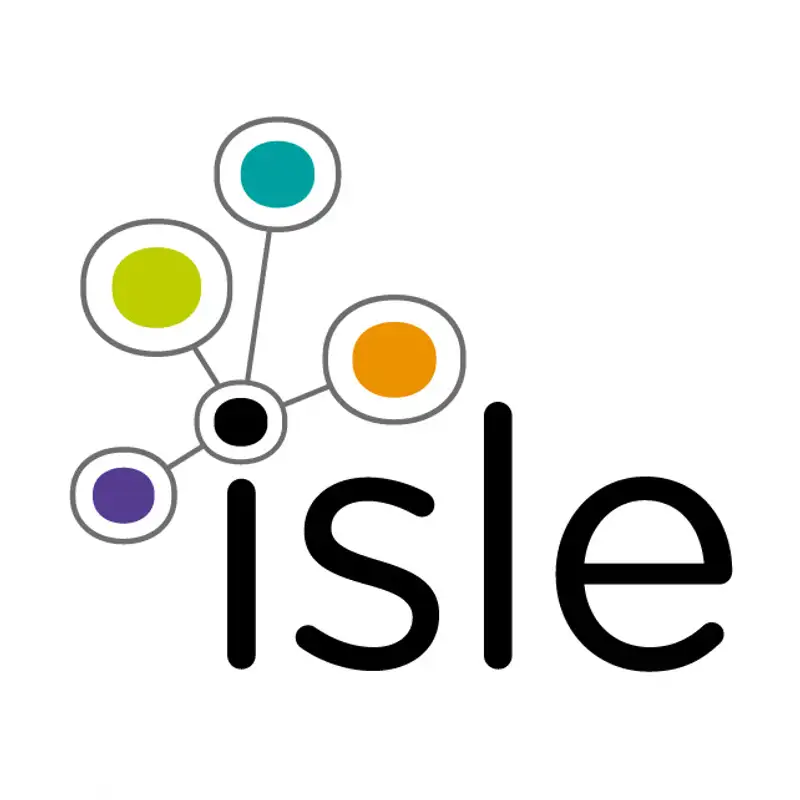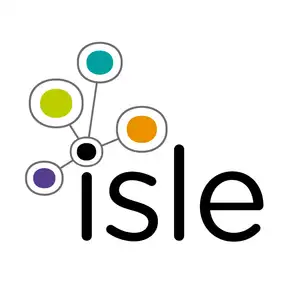
Sanasa - Serving the city of Campinas, with Manuelito Magalhães, CEO, Sanasa, Brazil
[00:00:00] Piers Clark: Welcome to the Exec Exchange 15 minute podcast in which a leader from the water sector shares a story to inspire, inform, and educate other water sector leaders from around the globe. My name is Piers Clark and my guest today is Manuelito Magalhães, the Chief Executive of Sanasa in Brazil.
[00:00:19] Piers Clark: Manuelito, brilliant to have you join us.
[00:00:22] Manuelito Magalhães: Thank you to your invite, and it's a pleasure to stay here talking with you in this podcast.
[00:00:29] Piers Clark: Wonderful. We want to start by knowing a bit about your background. So tell me, how long have you been in the role and what were you doing beforehand and how did you get to the role that you are in today?
[00:00:40] Manuelito Magalhães: First of all, I have a background in economics and I have a true passion for the public sector. I have worked in plenty areas of the public sector, and I have a relationship with the water sector since the nineties.
[00:00:56] Manuelito Magalhães: I have worked for the Health Ministry in Brazil. There is a part of the Health Ministry that deals with sanitation and water projects. Then I was a planning secretary and the CEO of a planning company in the metropolitan area of São Paulo, which is one of the biggest areas in terms of inhabitants in the world.
[00:01:17] Manuelito Magalhães: From 2007, I was a member of the board of Sabesp, one of the biggest waters and waste companies in the world. And 2011 to 2018, I was a director of Sabesp. Now I'm the Chief Executive of Sanasa.
[00:01:38] Piers Clark: That's brilliant. So what we've got here is an economist with a public servant attitude who's spent a long time in the water sector, and as you said, you worked as a director for one of the largest water utilities in the world, Sabesp, another Brazilian utility, but now you're the Chief Exec of Sanasa.
[00:01:56] Piers Clark: So tell me a little bit about Sanasa. Where is Sanasa and how many people does it serve?
[00:02:02] Manuelito Magalhães: Sanasa, it's a mixed company in Brazilian sanitation sector. It belongs to public and private shareholders, but the majority of shareholders is the city of Campinas.
[00:02:15] Manuelito Magalhães: Campinas is a city a hundred kilometers near of São Paulo. It's one of the largest cities and one of the third largest GDP area in Brazil.
[00:02:26] Piers Clark: It's a public private partnership. How many people do you serve?
[00:02:29] Manuelito Magalhães: 1.2 million of inhabitants. Sanasa has been a successful company with some indicators that puts Campinas as the first city in Brazil in terms of water coverage, in terms of waste coverage, waste treatment, wastewater coverage, wastewater treatment, and in terms of non-revenue water.
[00:02:50] Manuelito Magalhães: In Brazil, we have about 38- 39% of non-revenue water, but in Campinass it's only 17-18%. And it's an exception because in Brazil in general, local companies, local operators of sanitation and water are not running very well.
[00:03:09] Piers Clark: Excellent. You are below the national average in terms of your non-revenue water.
[00:03:15] Manuelito Magalhães: Yes, that's correct.
[00:03:17] Piers Clark: Manuelito, as the head of a sanitation company, I can imagine you have this sort of flood of issues that get escalated to you. So, what are the key priorities and how do you deal with those?
[00:03:28] Manuelito Magalhães: First of all, I enjoy what I do and with one foot firmly rooted in fiscal discipline and to be efficient, keep an eye on innovation, I think that's the way we can bring some value to our action and to our decisions. We have to pay attention to the poor people we are serving who have extreme difficulty in paying the bills.
[00:03:51] Manuelito Magalhães: Now, we are starting to be more efficient in reducing our non-revenue water to have lower costs of bills for the people. We have one of the best indicator in Brazil. We are trying to reduce the non-revenue water using artificial intelligence in a partnership with Amanco Wavin and Microsoft.
[00:04:13] Piers Clark: Tell me a bit more about that Microsoft relationship. What is it you're doing in this partnership?
[00:04:18] Manuelito Magalhães: We are putting sensors in the pipes. These sensors catch a lot of signals on how the water is running in the pipes, the pressure, and other indicators. Now we have 50% of the city with sensors, and behind this we have the TaKaDu's system supporting our team to decide where we seek for leaks or something similar.
[00:04:42] Piers Clark: I used to work at Thames Water and I experienced TaKaDu, back in the 2010, 2011, just as they were beginning to reach out. It's really great to see it being used in full scale now.
[00:04:56] Manuelito Magalhães: Actually the sensors cost nothing for Sanasa.
[00:05:00] Piers Clark: Oh really? How so?
[00:05:02] Manuelito Magalhães: Yes, of course we have the people operating the field, fixing the pipes. That's our job, of course. But the sensors, the TaKaDu system, it costs nothing for us. It's a partnership with Amanco Wavin and Microsoft.
[00:05:17] Piers Clark: Excellent. I get this obligation that you feel that because many of your residents that you serve are below the normal welfare line. It adds an extra dynamic for you to be even more efficient.
[00:05:29] Piers Clark: Now that's interesting because in 2020, I think there was a law passed, which really was driving the water sector in Brazil towards more privatization. Now at Sanasa, you seem to have been able to hold on to being a public utility.
[00:05:45] Manuelito Magalhães: Yes. In 2020 we have a new legal framework that try to incentivize the privatization of the PPPs in the water sector.
[00:05:55] Manuelito Magalhães: In Brazil, we don't have universal access to water and wastewater treatment and sewage collection. We have about 35 million of inhabitants without access to treated water and 100 million of inhabitants without access to wastewater treatment and sewage collection. It's a huge problem and we want to reach the universalization.
[00:06:20] Manuelito Magalhães: That's why they changed the law, to create incentives to have a bigger participation private sector. Campinas and Sanasa have a different story in this case. Sanasa now has 51 years of foundation, and the city of Campinas has a history link with the sanitation sector. In 1889-1890, we had a yellow fever epidemic that reduced the population of the city to only 10%. Before we had 50,000 of inhabitants and after the different yellow fever epidemics during seven years, we have only 5,000 of inhabitants left by 1890.
[00:07:03] Manuelito Magalhães: Campinas survived this with constructions to deal with the sanitation problem, and that's why we survive as a public company. Now, we still have a public company because we provide a good service. We have about 98% of satisfied customers because if we don't provide a good service, we will have problems with our customers.
[00:07:25] Manuelito Magalhães: They will ask for low cost and they will ask for privatization. Now, the population of Campinas say "No. We want Sanasa to continue to be a public company".
[00:07:35] Piers Clark: I love this idea of the universalization of treatment, making sure that a hundred percent of people get access to clean water and they get access to good sanitation, that aspiration to achieve that.
[00:07:47] Piers Clark: Now, I know you've been heavily engaged in the issues around reuse and water security. Can you highlight the challenges there and what you've been doing to address those?
[00:07:57] Manuelito Magalhães: Campinas was one of the first cities in Brazil to have sewage treatment in a tertiary level that produce reuse water with 99% of purity.
[00:08:07] Manuelito Magalhães: We have now two plants that produce water reuse, and they're retrofitting another one. In two years, we will have this retrofit completed. We'll have 50% of the sewage converted into water reuse. Now we can use this water reuse for industrial cooling, for firefighting by the firefighters to clean the streets, to water the plants of the parks and things like that.
[00:08:31] Manuelito Magalhães: This third water reuse plant will be the largest in the South America and one of the largest in the world.
[00:08:39] Piers Clark: Brilliant. It's very impressive. Now, we always like to finish with a question that's a little bit cheeky, and the question I'm gonna ask you is if you could go back in time, if we had a time machine and you can go back 20, 30 years, what advice would you give a young Manuelito?
[00:08:55] Manuelito Magalhães: I would say to be connected with the people. Try to think what they expect of you as a CEO, as a director, as a secretary, what the public expects from you. That's very important to be connected with the population because we are public servers and our mission is to serve the public.
[00:09:13] Piers Clark: Brilliant. You have been listening to the Exec Exchange with me Piers Clark, and my guest today is Manuelito Magalhães, the Chief Executive for Sanasa serving the city of Campinas in Brazil.
[00:09:28] Piers Clark: Hope you enjoyed it and I hope you can join us next time. Thank you.
